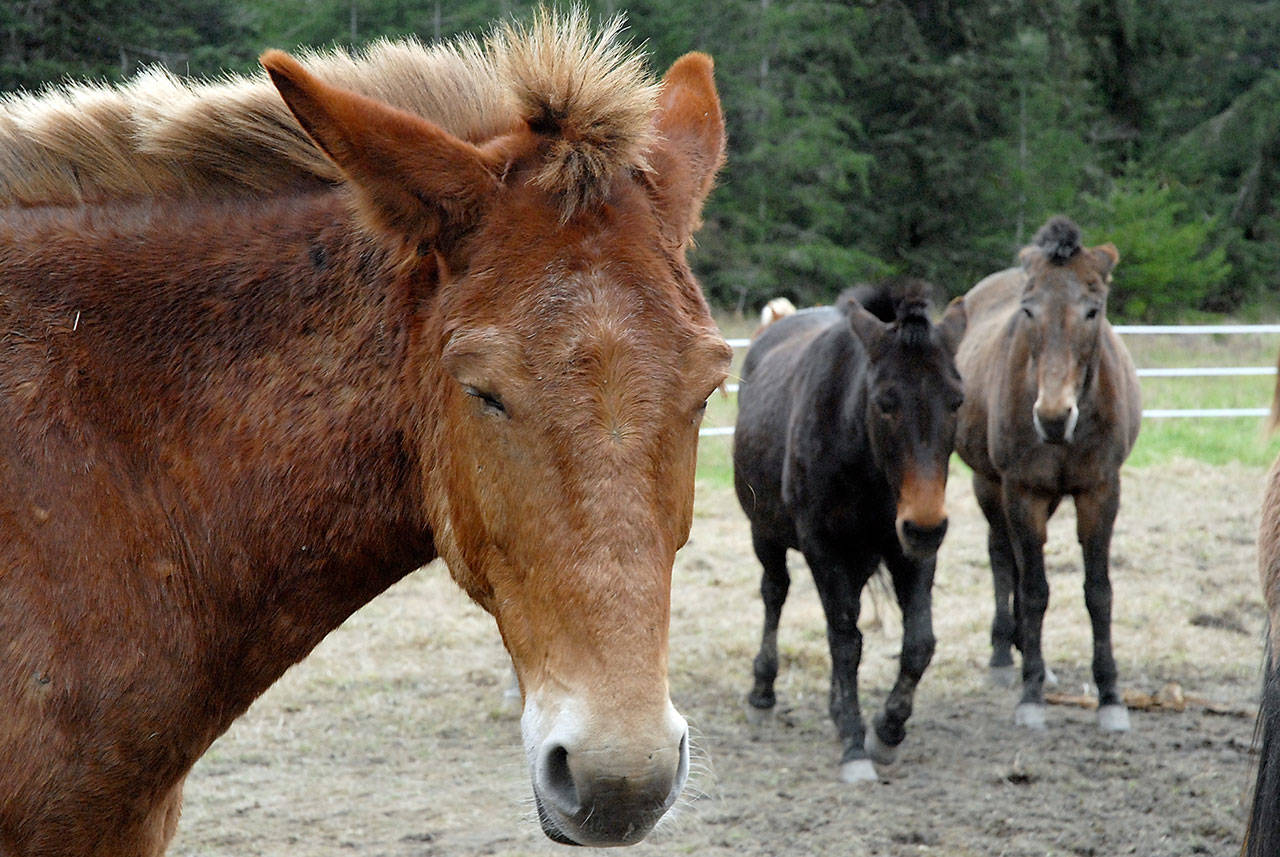OLYMPIC NATIONAL PARK — No, it isn’t a petting zoo or a stable for horse and pony rides.
The barren of mules grazing near the Madison Falls trailhead is there for trail maintenance and other projects in Olympic National Park.
The 30 working animals will spend their leisure time this spring and summer in a temporary corral near the Madison Falls parking lot — the end of the road into the Elwha River Valley.
The mules perform “critical” work for the park between April and October and spend the winter at pasture in Sequim, park spokeswoman Penny Wagner said.
The temporary corral is just east of Olympic Hot Springs Road, which is closed for a major washout about a mile upstream.
“It’s important to understand that that isn’t for horseback rides or anything like that,” Wagner said.
“That is a work operation, and that is an electric fence.”
The animals were moved from their permanent quarters at Whiskey Bend Road to Sweets Field — the meadow near Madison Falls named for early homesteaders Lester and Anna Sweet — because of the extended road closure.
“Obviously, we need to have vehicle access to where they are,” Wagner said.
Visitors are reminded to stay on the road as they travel on foot or bicycle beyond the gate into the upper Elwha Valley.
Olympic National Park has deployed mule teams for hauling equipment and supplies since 1984.
Last year, the mules carried 42,500 pounds of gear for the maintenance division and 2,500 pounds of gear for other divisions, Wagner said.
The mules and their packers covered more than 1,300 miles on wilderness trails last year — the approximate distance from Port Angeles to Tijuana, Mexico.
Wagner said the mules are essential for hauling equipment and other supplies into the wilderness, where non-emergency mechanical transport is prohibited under federal law.
“They carry a lot of food and water, a lot of lumber, a lot of tools, that kind of thing,” Wagner said in a Wednesday interview.
“It’s just a really important operation for the park because of the Wilderness Act and the rules about what you can do in the wilderness as far as transporting things.”
The 877,000-acre Daniel J. Evans Wilderness, which was renamed for the former governor and U.S. Senator last August, covers 95 percent of Olympic National Park.
Last December, the park mules escaped from their pasture on the 800 block of West Fir Street in Sequim and traveled about eight miles in and around the city in just over an hour.
Police vehicles blocked city streets to direct the mules back to their pasture last Dec. 15.
A mule is the offspring of a male donkey and a female horse.
Mules played a key role in early wars and the westward expansion of the United States, according to the American Mule Museum.
“They are a really critical part of us being able to accomplish the work that we do for the trails in the wilderness,” Wagner said.
________
Reporter Rob Ollikainen can be reached at 360-452-2345, ext. 56450, or at rollikainen@peninsuladailynews.com.

